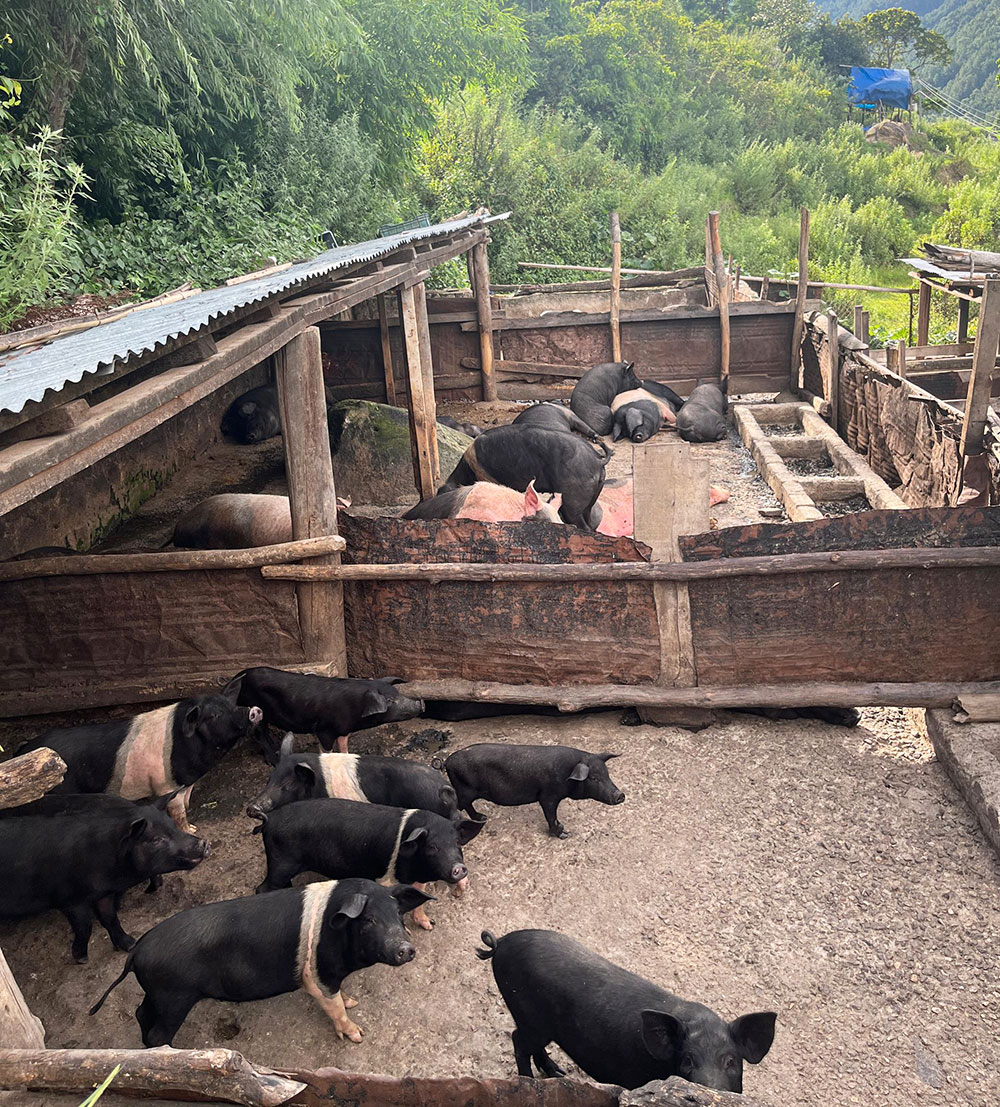Chencho Dema
The slaughter, movement, sale, and transport of pigs and pig products have been banned in Punakha and Wangdue dzongkhags following an outbreak of African Swine Fever (ASF).
Bhutan reported its first case of ASF this year on February 9 in Bangyul village in Pemagatshel. The first ASF was reported in stray pigs in Phuentsholing in 2020. Since then, ASF has spread to 10 dzongkhags in Bhutan.
Since 2020, the country has experienced ASF outbreaks in Chukha, Samtse, Pemagatshel, Trashigang, Paro, Sarpang, Dagana, Samdrup Jongkhar, Punakha, and Wangdue.
Between 2020 and 2024, 2,740 pigs have been culled to curb ASF, including 273 culled during the latest outbreak last month, 121 in Punakha, and 152 in Wangdue.
The latest outbreak of ASF was confirmed in a commercial piggery farm in Zawakha in Daga Gewog, Wangdue, on June 28 and at Tshether farm in Sirigang in Kabjisa Gewog in Punakha on June 29. On June 27, a female pig succumbed to the viral disease in a commercial piggery farm in Zawakha. Nine piglets died three days after the index case.
Following the owner’s report to the nearest livestock extension office, Dr Jamtsho, the dzongkhag veterinary officer in Wangdue, conducted an investigation on June 28. On June 28, the samples were sent to the National Centre for Animal Health in Serbithang. Laboratory tests were conducted on June 29, and the results confirmed the outbreak of ASF.
The Wangdue dzongkhag, along with concerned stakeholders, implemented stringent measures as per the National African Swine Fever Prevention and Control Plan 2021 (NASFPCP 2021) to prevent the further spread of the disease. In Wangdue, there are 53 commercial, semi-commercial, and subsistence farms with a swine population of more than 1,000.
On June 28, ASF was reported in Punakha and was confirmed on June 29 by Polymerase Chain Reaction (PCR), a standard test to confirm ASF. The dzongkhag veterinary officer, Dr Rinchen Tshering, said that the issue is serious because there are about 123 pigs on the farm located on the Gasa-Punakha highway, which will pose a risk of further spread. Five pigs had died then.
In a public notification issued by Punakha Dzongda Thuji Tshering on July 1, the dzongkhag administration announced immediate measures to contain and prevent the spread of ASF. The movement of live pigs into and out of the dzongkhag has been suspended, and the transport of other livestock products from integrated farms in Punakha to other locations has also been restricted.
Pig farmers are strongly advised to implement strict biosecurity measures on their farms, stop feeding kitchen waste to pigs, ensure that domestic pigs do not come into contact with wild pigs, and report any unusual pig deaths to the nearest livestock centre or the Bhutan Food and Drug Authority office. Punakha has four piggery farms.
Dr Sangay Rinchen, the program director of the National Centre for Animal Health, said that following the confirmation of the outbreak, as per the NASFPCP 2021, the National Incident Command Committee meeting was convened on July 1. He said the technical working group and Incident Operation Centres (IOC) were activated.
“Besides carrying out the 3-D operation (depopulation, disposal, and decontamination), the IOCs have been creating awareness among the people in general and pig farmers in the dzongkhags, advocating for the need to enhance farm biosecurity in the vicinity of the affected areas and conducting syndromic surveillance,” he added. “Therefore, to ensure limited spread, we mount rapid containment measures which include 3-D operation.”
Dr Sangay said ASF is a very severe disease of pigs with high rates of illness and death among pigs, resulting in severe economic losses to farmers and impacting animal welfare if left uncontrolled.
He also said ASF threat persistently looms in the country.
In total, Bhutan has about 34,000 pigs.


